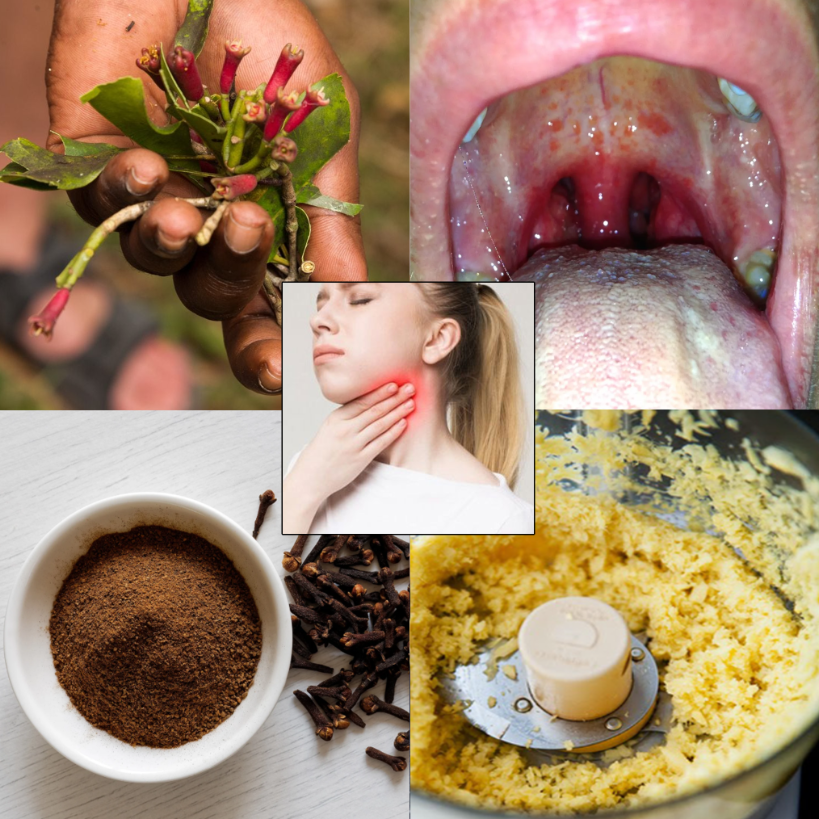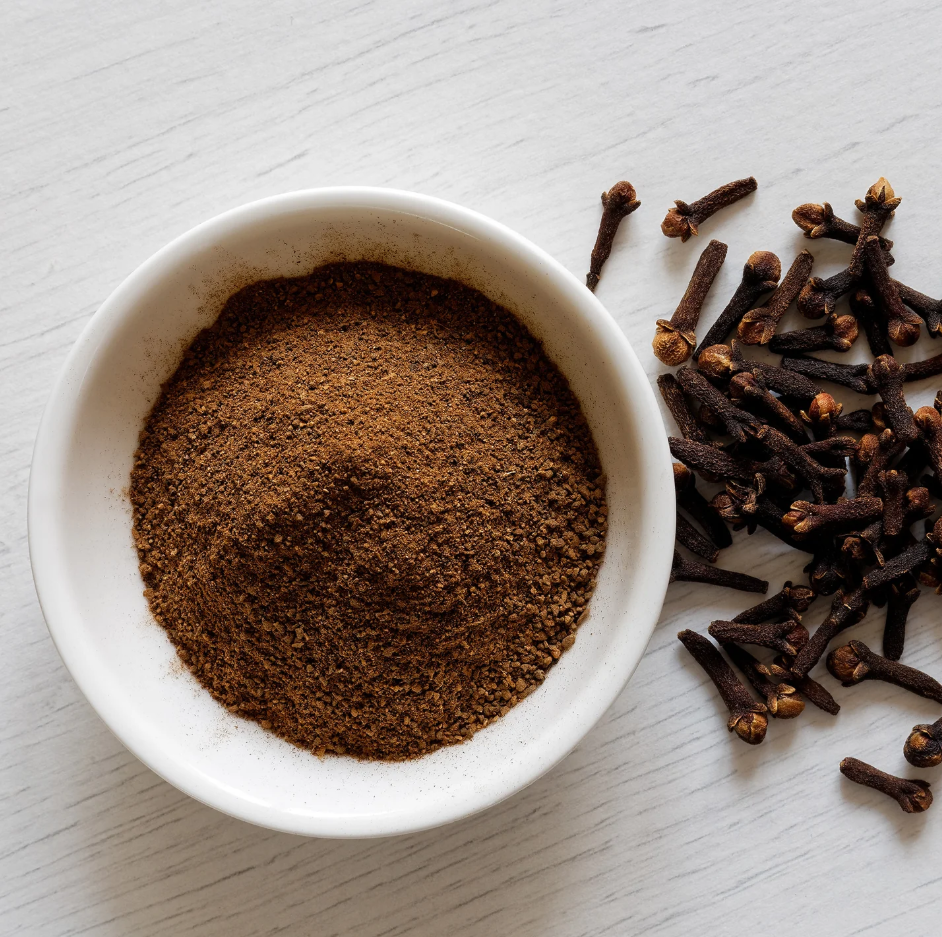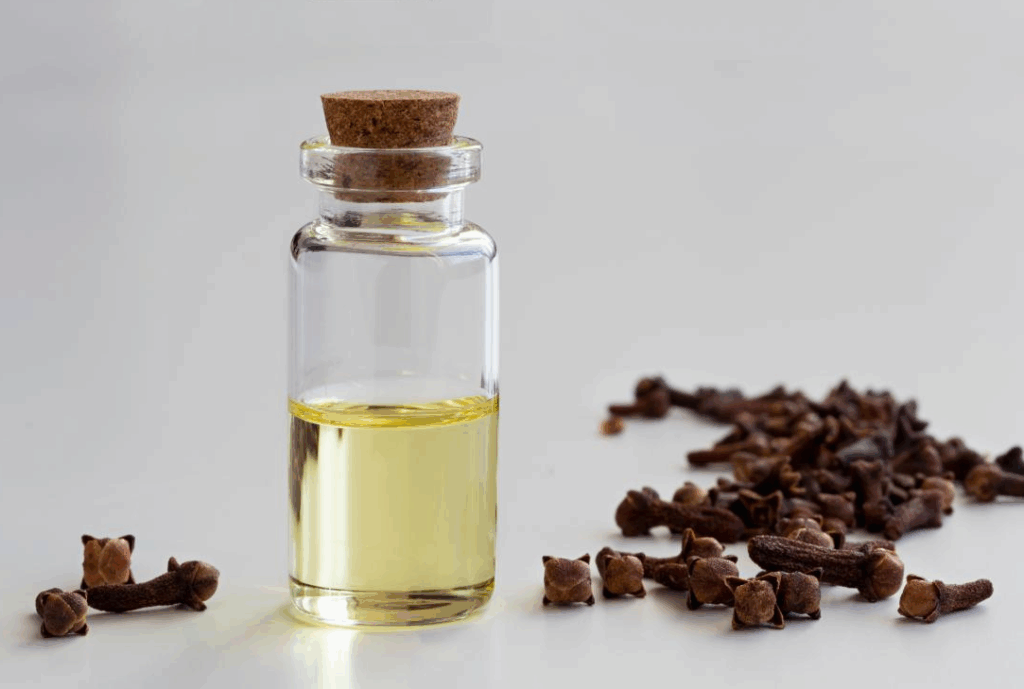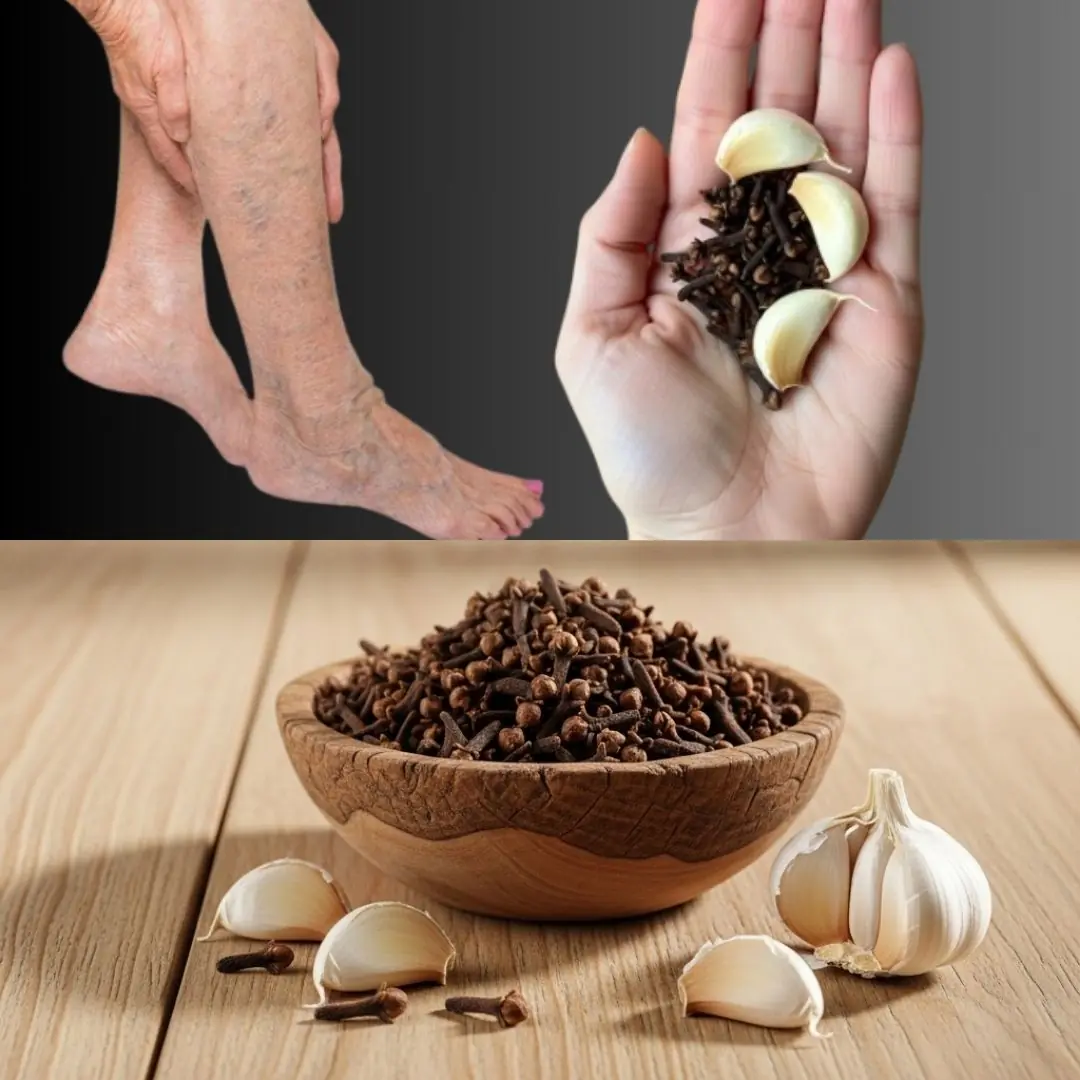
Soothe Your Throat Naturally: Home Remedies with Cloves
Soothe Your Sore Throat Naturally with Cloves: A Simple Remedy Backed by Science
A scratchy, irritated throat can turn everyday activities like talking, swallowing, or even breathing into a frustrating ordeal. But what if relief was already sitting on your kitchen shelf? Cloves—those tiny, fragrant flower buds—have long been used in traditional remedies for their ability to calm throat irritation and promote overall wellness. These powerful spices are loaded with natural compounds that may ease inflammation, combat bacteria, and deliver a gentle numbing effect.
In this article, we’ll explore how cloves can help soothe a sore throat, how to use them effectively and safely, and how adding them to your routine may support broader oral and immune health—all backed by science and expert recommendations.
Why Cloves Are a Trusted Go-To for Throat Relief
Cloves, the dried buds of the Syzygium aromaticum tree, are more than a warm addition to holiday recipes. Historically used in Ayurvedic and Chinese medicine, cloves are rich in a compound called eugenol, known for its anti-inflammatory, antibacterial, and mildly anesthetic properties.
According to WebMD, eugenol may help reduce swelling and kill harmful microbes that can worsen throat infections. A 2018 review published in the journal Molecules also found that clove oil exhibits strong antimicrobial activity, potentially helping to maintain throat and oral hygiene. Whether steeped in tea, used in gargles, or incorporated into herbal lozenges, cloves offer a natural, holistic approach to throat care when used with care.
What Makes Cloves So Effective?
Cloves aren’t just comforting—they're scientifically impressive:
-
Anti-Inflammatory Power: Eugenol helps soothe irritated tissues in the throat.
-
Antibacterial Action: Fights bacteria that may lead to sore throat or infections.
-
Mild Anesthetic Effect: Slightly numbs the area, offering temporary relief.
-
Rich in Antioxidants: Contains flavonoids and phenolic compounds that support immune function and overall health.
-
Antiviral Potential: Preliminary research suggests cloves might help combat certain viruses.
These properties make cloves a versatile and multi-functional spice for throat and immune support.
Clove Tea: A Comforting Classic for Throat Soothing
One of the easiest and most enjoyable ways to benefit from cloves is by making clove tea. Warm fluids are known to relax throat muscles, loosen mucus, and keep the throat hydrated—effects supported by the Mayo Clinic. Clove tea adds even more value, combining warmth with powerful bioactive compounds.
How to Make Clove Tea
Ingredients:
-
4–5 whole cloves
-
1 cup of water
-
1 teaspoon honey (optional)
-
A squeeze of lemon juice (optional)
Instructions:
-
Boil the water, then add the cloves.
-
Simmer for 5–10 minutes to release the essential oils.
-
Strain and pour into a cup.
-
Stir in honey and lemon if desired.
-
Sip slowly, once or twice a day.
Pro Tip: Don’t overboil—too much heat can make the tea bitter and degrade eugenol.
This aromatic tea not only eases discomfort but also helps clear your airways, making it especially useful during colds, flu, or allergy flare-ups.
Clove Gargle: Fast, Focused Relief
For those dealing with acute irritation or inflammation, a clove gargle offers a quick, localized remedy. Harvard Health recommends warm salt water gargles for sore throats, but adding cloves brings an antimicrobial boost.
Clove Gargle Recipe
Ingredients:
-
3–4 whole cloves
-
1 cup of warm water
Instructions:
-
Steep cloves in warm water for 10 minutes.
-
Strain and cool to a comfortable temperature.
-
Gargle for 10–15 seconds per sip, then spit out.
-
Repeat 2–3 times, up to twice per day.
Safety Note: Do not swallow clove-infused water, as it may irritate the stomach if consumed in concentrated form.
This simple method is ideal after prolonged talking, singing, or when exposed to dry or polluted air.
Cloves for Oral Health and Throat Protection
The link between oral hygiene and throat health is well documented. According to the CDC, maintaining a clean mouth helps prevent infections that could spread to the throat. Cloves contribute to oral hygiene through their antibacterial and breath-freshening effects.
A 2020 study in the Journal of Dentistry demonstrated that clove oil reduced levels of harmful oral bacteria. This suggests a preventative benefit: by keeping the mouth clean, cloves may help stop sore throats before they start.
Everyday Oral Uses of Cloves
-
Chew a Whole Clove: Place one clove in your mouth, chew gently for a minute or two, and spit it out. This can freshen breath and soothe minor irritation.
-
Clove-Infused Honey: Mix ½ tsp ground cloves with 1 tbsp honey. Take ½ tsp as needed, especially after meals. Rinse your mouth afterward to protect teeth.
Caution: Avoid frequent chewing to prevent gum irritation. Consult a dentist if you have dental conditions or sensitivities.
Incorporating Cloves into Your Diet for Long-Term Wellness
You don’t need to wait until you have a sore throat to use cloves. Integrating them into your daily diet can support overall immune health and potentially reduce your susceptibility to infections.
The American Heart Association emphasizes that diets high in antioxidants support systemic wellness. Cloves are one of the richest sources of these compounds among spices.
Try This: Clove-Infused Oatmeal
Ingredients:
-
½ cup oats
-
1 cup milk or water
-
¼ tsp ground cloves
-
1 tsp honey
-
A handful of berries
Instructions:
-
Cook the oats in your preferred liquid.
-
Stir in cloves and honey.
-
Top with fresh berries.
-
Enjoy warm for a nourishing, immunity-boosting breakfast.
You can also add a pinch of ground cloves to smoothies, curries, or stews for an easy health upgrade.
Safety Tips and Precautions When Using Cloves
While cloves are generally safe in moderate amounts, they are potent and should be used responsibly. Overuse, particularly of clove oil, can lead to side effects such as mouth irritation, nausea, or even liver stress.
A 2019 study in Food & Function reported that high doses of eugenol could impact liver enzymes. So moderation is key, especially if you plan to use cloves regularly.
Safe Use Guidelines:
-
Start Small: Use 3–5 cloves per remedy to gauge tolerance.
-
Don’t Overdo It: Stick to 1–2 doses per day.
-
Check for Allergies: Discontinue use if you experience rash, swelling, or discomfort.
-
Consult Your Doctor: Especially if pregnant, breastfeeding, or taking blood-thinning medications.
Always purchase organic, high-quality cloves from a reputable source to avoid pesticides or adulterants.
A Powerful Little Spice for Natural Relief
Cloves are more than just a seasonal spice—they’re a compact powerhouse for soothing sore throats and supporting holistic wellness. From healing teas and gargles to dietary uses and oral health benefits, cloves offer a safe, science-supported remedy when used properly.
Ready to give cloves a try? Start small, listen to your body, and enjoy the comforting warmth of this ancient spice.
CTA: Have you tried cloves for throat relief? Share your favorite method or recipe in the comments below!
Disclaimer: This article is for informational purposes only and should not replace professional medical advice. Always consult your healthcare provider before making changes to your health routine.
News in the same category


Unlock the Secret Elixir: Why Ginger, Cloves, and Lipton Tea Could Transform Your Health

🌿 The Hidden Power of Papaya Leaves: Nature’s Unseen Healer

Clove, Honey, and Cinnamon Blend: A Simple Daily Remedy for Wellness

Leg Pain, Rheumatism, Varicose Veins, and Arthritis? Try This Simple Garlic & Olive Oil Remedy!

12 Incredible Health Benefits of Phyllanthus Niruri – Don’t Throw It Away!

Eat Chia Seeds at Night for 1 Week & See What Happens to You! 🌙✨

16 Benefits of Chayote Juice: Say Goodbye to Pills and Hello to Natural Healing

Mullein: The Powerful Plant That Soothes Your Lungs, Joints & Muscles Naturally

9 Easy Ways to Strengthen Your Knees: Support Joint Health Naturally

5 Drinks Cancer Cells Love – Are You Feeding the Enemy?

Kickstart Your Day with These 6 Kidney-Friendly Habits for Lifelong Health

The Hidden Dangers of Datura Stramonium: A Beautiful Yet Lethal Plant

6 Foods to Prevent Leg Cramps in Seniors: Stronger, Healthier Muscles!

Euphorbia Hirta: Nature’s Hidden Gem for Wellness

Can Garlic Support Healthier Veins Naturally?

Can Chia Seeds Support a Healthier Waistline Naturally?

Natural Oral Care for Seniors: How Ginger and Lemon May Support a Brighter Smile Over Time

Coffee with Ginger: A Tasty Wellness Drink Hiding in Your Kitchen
News Post

Mom’s Natural Remedy with Lemon: A Modern Cure-All for Pain and Inflammation 🍋🌿

Unlock the Secret Elixir: Why Ginger, Cloves, and Lipton Tea Could Transform Your Health

🌿 The Hidden Power of Papaya Leaves: Nature’s Unseen Healer

Clove, Honey, and Cinnamon Blend: A Simple Daily Remedy for Wellness

Leg Pain, Rheumatism, Varicose Veins, and Arthritis? Try This Simple Garlic & Olive Oil Remedy!

12 Incredible Health Benefits of Phyllanthus Niruri – Don’t Throw It Away!

4 Types of Cancer with Over 90% Cure Rate: Everyone Should Watch for the Early Signs

If Cancer Is Developing in the Body, These 3 Nighttime Signs Often Appear — But Many People Ignore Them

5 Early Symptoms of Stomach Cancer That Help with Early Detection

Prostate Cancer: Warning Signs and Symptoms Men Shouldn't Ignore

8 Warning Signs Your Tongue May Be Sending About Your Health

Boost Your Iron: Essential Signs to Watch For & Effective Strategies

Scientists Explain How Sleeping on Your Left Side Affects Your Health

Scientists Explore Shocking Idea That Plants And Atoms Could Be Aware

Proven Health Benefits of Eating Eggs: More Than Just Breakfast Food

Eat Chia Seeds at Night for 1 Week & See What Happens to You! 🌙✨

Top Signs of Iron Deficiency & Science-Backed Ways to Boost Your Iron Levels

16 Benefits of Chayote Juice: Say Goodbye to Pills and Hello to Natural Healing

Mullein: The Powerful Plant That Soothes Your Lungs, Joints & Muscles Naturally
